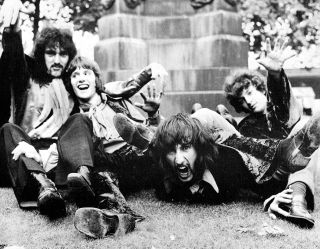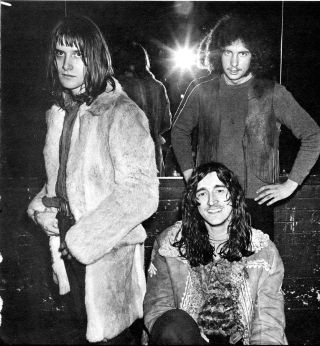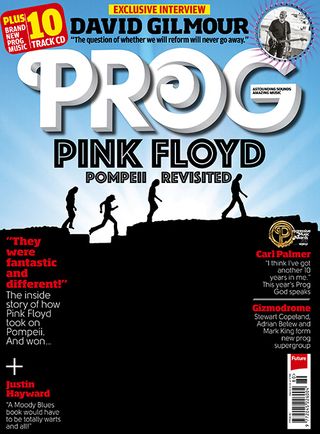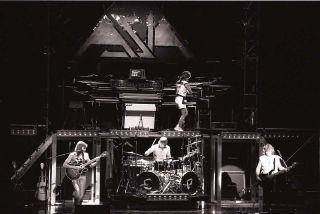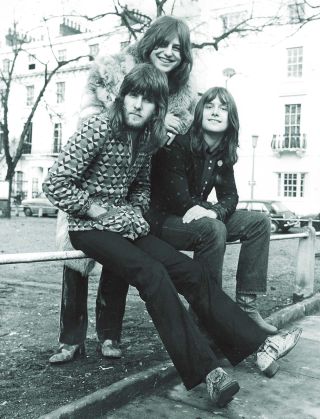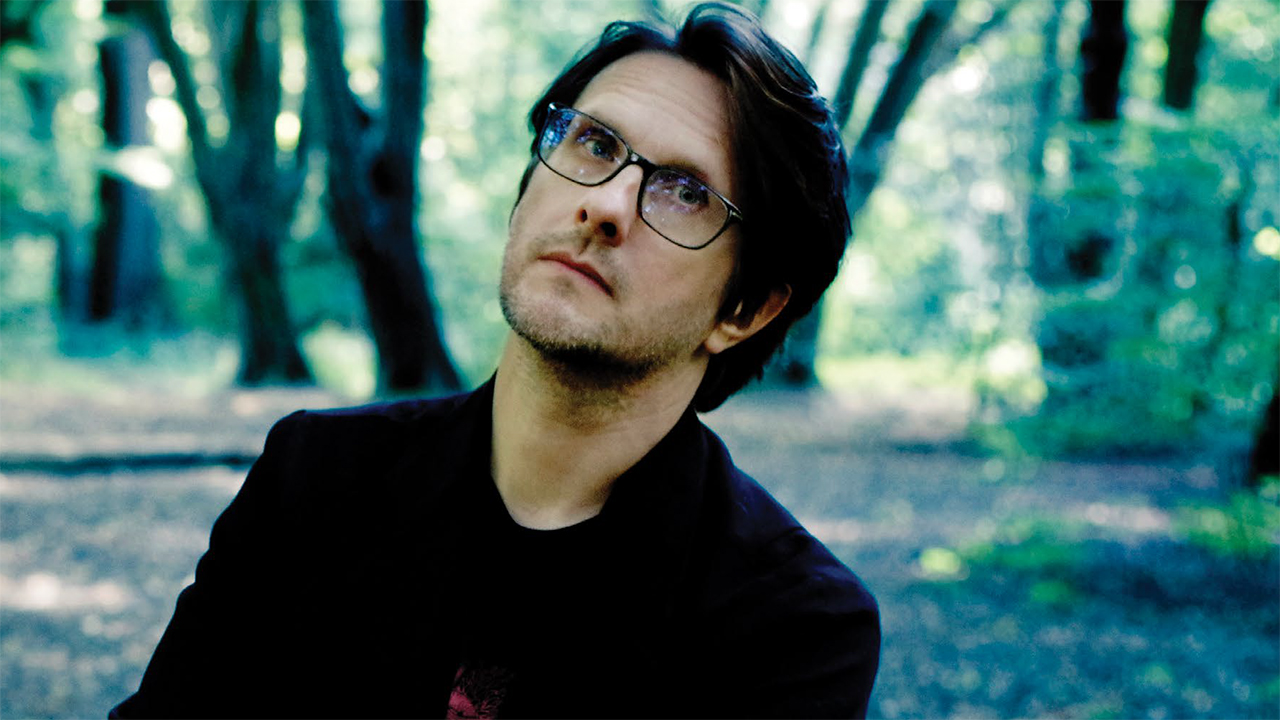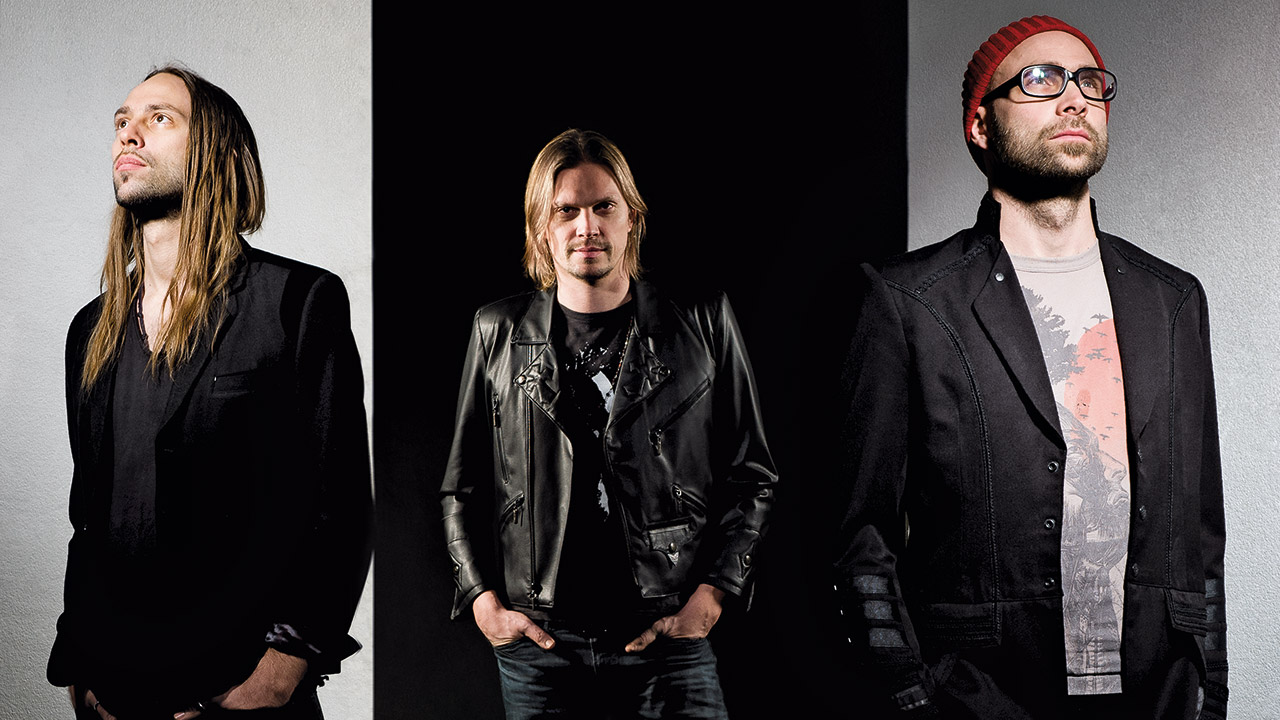Brian Kachejian 10 minutes ago

Feature Photo: John Colden, CC BY-SA 4.0
When Ed Roland began recording demos in a basement in Stockbridge, Georgia, few could have predicted that these unassuming sessions would lay the groundwork for one of the most enduring bands in modern rock. Formed in 1992, Collective Soul emerged as a powerful force in alternative rock, blending deeply personal lyrics with unforgettable melodies that resonated with audiences worldwide. The original lineup included Ed Roland as the band’s creative driving force, joined by his brother Dean Roland on rhythm guitar, Ross Childress on lead guitar, Will Turpin on bass, and Shane Evans on drums.
The band’s ascent began with the unexpected success of “Shine,” a track from their independently released album Hints, Allegations, and Things Left Unsaid. The song’s anthemic quality and raw sincerity captured the attention of local radio stations, quickly earning them a deal with Atlantic Records. The album’s re-release in 1994 propelled Hints, Allegations, and Things Left Unsaid to commercial success, with “Shine” topping the Mainstream Rock chart and becoming a defining anthem of the era.
In 1995, the band released their self-titled sophomore album, which Ed Roland has described as their “true debut.” Featuring hits like “December,” “The World I Know,” and “Gel,” the album was a massive commercial success, spending over a year on the Billboard 200 and earning triple platinum certification. Its intricate instrumentation and reflective lyrics showcased a maturity that solidified Collective Soul’s reputation as a band capable of both chart-topping hits and artistic depth.
Throughout their career, Collective Soul released a series of albums that showcased their versatility and growth. Disciplined Breakdown (1997) and Dosage (1999) produced rock radio staples such as “Precious Declaration” and “Heavy,” the latter setting a record for its 15-week reign atop the Mainstream Rock chart. Despite lineup changes, including the departure of lead guitarist Ross Childress in 2001, the band continued to evolve, with albums like Blender (2000) and Youth (2004) offering fresh takes on their signature sound.
Over the decades, Collective Soul has released 12 studio albums, with recent works such as Blood (2019) and Vibrating (2022) continuing to demonstrate their relevance in the ever-changing music industry. Their discography reflects a rare balance between commercial success and artistic integrity, with songs like “She Said” and “Better Now” further cementing their legacy.
The band’s impact extends beyond their recorded work. Known for their dynamic live performances, Collective Soul has captivated audiences at major festivals, including Woodstock ’94 and Woodstock ’99. Their commitment to delivering powerful, emotive performances has earned them a loyal fanbase that spans generations.
Among their accolades, Collective Soul received the ASCAP Pop Music Award for “Shine” and a BMI Pop Award for several of their enduring hits. Their influence on alternative rock is undeniable, with their music continuing to inspire new artists while resonating with longtime fans. Outside of music, the band has supported philanthropic efforts, showcasing their dedication to causes beyond the stage.
(A – D)
10 Years Later – Blender (2000)
Adored – Afterwords (2007)
After All – Blender (2000)
All – Hints Allegations and Things Left Unsaid (1993)
All That I Know – Afterwords (2007)
Almost You – Shine (Australian Single) (1993)
Am I Getting Through – See What You Started by Continuing (2015)
AYTA – See What You Started by Continuing (2015)
Back Again – Half & Half (2020)
Bearing Witness – Afterwords (2007)
Beautiful World – Hints Allegations and Things Left Unsaid (1993)
Better Now – Youth (2004)
Big Sky – Blood (2019)
Blame – Disciplined Breakdown (1997)
Bleed – Collective Soul (1995)
Blue Christmas – Various (1995)
Boast – Blender (2000)
Breathe – Hints Allegations and Things Left Unsaid (1993)
Burn – Home (Bonus Track) (2006)
Burning Bridges – Hints Allegations and Things Left Unsaid (1993)
Changed – Blood (2019)
Collection of Goods – Collective Soul (1995)
Compliment – Dosage (1999)
Confession – See What You Started by Continuing (2015)
Contagious – See What You Started by Continuing (2015)
Counting the Days – Youth (2004)
Crowded Head – Disciplined Breakdown (1997)
Crown – Dosage (1999)
Crushed – Blood (2019)
Dandy Life – Dosage (1999)
December – Collective Soul (1995)
Dig – Collective Soul (2009)
Disciplined Breakdown – Disciplined Breakdown (1997)
(E – L)
Energy – Seven Year Itch (2001)
Everything – Disciplined Breakdown (1997)
Feels Like (It Feels Alright) – Youth (2004)
Forgiveness – Disciplined Breakdown (1997)
Full Circle – Disciplined Breakdown (1997)
Fuzzy – Collective Soul (2009)
Gel – Collective Soul (1995)
General Attitude – Youth (2004)
Generate – Dosage (1999)
Georgia Girl – Afterwords (2007)
Giving – Disciplined Breakdown (1997)
Good Morning After All – Afterwords (2007)
Good Place to Start – Blood (2019)
Goodnight, Good Guy – Hints Allegations and Things Left Unsaid (1993)
Happiness – Blender (2000)
Heart to Heart – Collective Soul (2009)
Heaven’s Already Here – Hints Allegations and Things Left Unsaid (1993)
Heavy – Dosage (1999)
Him – Youth (2004)
Hollywood – Afterwords (2007)
Home – Youth (2004)
How Do You Love – Youth (2004)
Hurricane – See What You Started by Continuing (2015)
Hymn for My Father – Collective Soul (2009)
I Don’t Need Anymore Friends – Afterwords (2007)
In a Moment – Hints Allegations and Things Left Unsaid (1993)
In Between – Disciplined Breakdown (1997)
Jealous Guy – Working Class Hero: A Tribute to John Lennon (1995)
Let Her Out – Half & Half (2020)
Life – See What You Started by Continuing (2015)
Lighten Up – Collective Soul (2009)
Link – Disciplined Breakdown (1997)
Listen – Disciplined Breakdown (1997)
Love – Collective Soul (2009)
Love Lifted Me – Hints Allegations and Things Left Unsaid (1993)
(M – R)
Maybe – Disciplined Breakdown (1997)
Memoirs of 2005 – See What You Started by Continuing (2015)
My Days – Collective Soul (2009)
Needs – Dosage (1999)
Never Here Alone – Afterwords (2007)
New Vibration – Afterwords (2007)
Next Homecoming – Seven Year Itch (2001)
No More, No Less – Dosage (1999)
Not the One – Dosage (1999)
Now’s the Time – Blood (2019)
Now You’ve Got Me Drinkin’ – From the Group Up (Hidden track) (2005)
Observation of Thoughts – Blood (2019)
Opera Star – Half & Half (2020)
Over Me – Blood (2019)
Over Tokyo – Blender (2000)
Peace, Love & Understanding – Free digital download (2015)
Perfect Day – Blender (2000)
Perfect to Stay – Youth (2004)
Persuasion – Dosage (Japanese bonus track) (1999)
Persuasion of You – Afterwords (2007)
Porch Swing – Blood (2019)
Precious Declaration – Disciplined Breakdown (1997)
Pretty Donna – Hints Allegations and Things Left Unsaid (1993)
Reach – Hints Allegations and Things Left Unsaid (1993)
Reunion – Collective Soul (1995)
Right As Rain – Blood (2019)
Run – Dosage (1999)
(S – Z)
Satellite – Youth (2004)
Scream – Hints Allegations and Things Left Unsaid (1993)
She Does – Collective Soul (2009)
She Gathers Rain – Collective Soul (1995)
She Said – Scream 2: Music from the Dimension Motion Picture (1998)
Shine – Hints Allegations and Things Left Unsaid (1993)
Simple – Collective Soul (1995)
Sister Don’t Cry – Hints Allegations and Things Left Unsaid (1993)
Skin – Blender (2000)
Slow – Dosage (1999)
Smashing Young Man – Collective Soul (1995)
Smile – Half & Half (2020)
Staring Down – Collective Soul (2009)
That’s All Right – Collective Soul (Japanese bonus track) (1995)
The Bugaloos – Saturday Morning: Cartoons’ Greatest Hits (1995)
The One I Love – Half & Half (2020)
The World I Know – Collective Soul (1995)
Them Blues – Blood (2019)
There’s a Way – Youth (2004)
This – See What You Started by Continuing (2015)
Tradition – See What You Started by Continuing (2015)
Tremble for My Beloved – Dosage (1999)
Turn Around – Blender (2000)
Under Heaven’s Skies – Youth (2004)
Understanding – Collective Soul (2009)
Untitled – Collective Soul (1995)
Vent – Blender (2000)
Wasting Time – Hints Allegations and Things Left Unsaid (1993)
Welcome All Again – Collective Soul (2009)
What I Can Give You – Afterwords (2007)
When the Water Falls – Collective Soul (1995)
Where the River Flows – Collective Soul (1995)
Why – Breathe single (Australian B-side) (1994)
Why, Pt. 2 – Blender (2000)
Without Me – See What You Started by Continuing (2015)
You – Collective Soul (2009)
You Speak My Language – Blender (2000)
Youth – From the Ground Up (2005)
Check out our fantastic and entertaining Collective Soul articles, detailing in-depth the band’s albums, songs, band members, and more…all on ClassicRockHistory.com
Complete List Of Collective Soul Albums And Discography
Top 10 Collective Soul Songs
Read More: Artists’ Interviews Directory At ClassicRockHistory.com
Read More: Classic Rock Bands List And Directory
Complete List Of Collective Soul Songs From A to Z article published on Classic RockHistory.com© 2024

About The Author
Brian Kachejian
Brian Kachejian was born in Manhattan and raised in the Bronx. He is the founder and Editor in Chief of ClassicRockHistory.com. He has spent thirty years in the music business often working with many of the people who have appeared on this site. Brian Kachejian also holds B.A. and M.A. degrees from Stony Brook University along with New York State Public School Education Certifications in Music and Social Studies. Brian Kachejian is also an active member of the New York Press.



